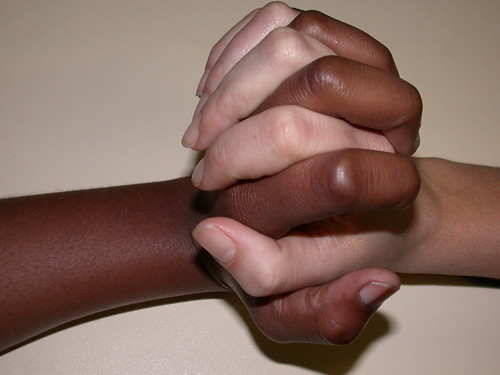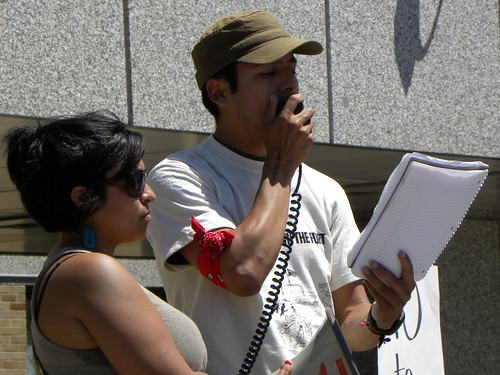Several years ago a popular trend swept through modern Christian circles as a number of people began sporting simple cloth bracelets with four initials imprinted upon them -- WWJD ("What Would Jesus Do?"). The bracelets were inspired by Charles Sheldon's 1896 book,
In His Steps, in which members of a fictional town committed to not do anything for a year without first asking themselves what Jesus would do in the same situation. Although the bracelets have waned in popularity, I think present events dictate that the question still needs to be asked. What would Jesus do?
A little-known pastor with a fairly small congregation in Gainesville, Florida has ignited a media firestorm over
his plans to hold a public burning of the Qur'an, the holy book of the Muslim faith. Although Rev. Terry Jones has said that he believes he is following God's will, a number of Christians and public officials have condemned his plans. Just as many Christians have expected Muslim clerics to publicly condemn acts of terrorism and hatred, we Christians should let it be known that we oppose the actions of those that act in the name of our God, yet do so contrary to our faith.
To burn a book that Muslims revere will only inflame the tensions between Christians and Muslims around the world and make genuine dialogue more difficult. It is true that Muslims and Christians have many disagreements. We do not view Christ in the same way, we have different views on the Bible and the Qur'an and we do not see salvation in the same manner. But book burning never changed a heart and insults only make things more difficult. California pastor Rick Warren said this about the matter on his
Twitter account, ""
Book burning is a cowardly act by those afraid their beliefs aren't strong enough to attract if people are allowed a choice."
If Pastor Jones were genuinely sincere in his desire to see Muslims come to the Christian faith, there are better ways for him to see that happen. He could look to the example of Craig Gross, the founder of
XXXchurch.com, a Christian ministry founded to help deliver people from the bondage of pornography and sexual sin. Gross recently wrote a provocative piece for CNN.com entitled "
Jesus loves porn stars", in which he shares how he has built a genuine friendship with Ron Jeremy, a well-known figure in the adult entertainment industry.
Since he's opposed to the porn industry, Gross could destroy porn DVD's, try to shut down websites and protest at industry conventions. But he's taken a much different approach. Gross has gotten to know Jeremy through a nationwide tour that they have done together on college campuses as they have debated the place of pornography in our culture. Naturally, Gross has received a lot of flack from a number of folks in Christian circles that feel uncomfortable talking about sex and some look down upon him because he's actually friends with a porn star. But Gross is in good company. Jesus himself was derided as a "
friend of sinners" and although others called him that in contempt, it is an accurate description.
Jesus hung with those that were considered the scourge of his society (the prostitutes and tax collectors) but he loved them just the same. Craig Gross has a challenging perspective on his relationship with Ron Jeremy:
"We are opponents on stage but off stage we are great friends. That's really what this is about. Jesus dined with tax collectors and befriended prostitutes. I don't want to be known as the guy who debates Ron, I'd rather be known as the guy who loves Ron."
Gross pulls no punches in his views on pornography. He feels it is evil and destroys lives. He hates porn. But he loves porn stars. I wonder if Terry Jones took a different approach to Islam if things might turn out differently. He wouldn't generate worldwide media coverage but inviting a local imam to dinner might be more effective than the approach he's currently planning on taking. But I get the feeling that he's probably not interested in that. He seems more concerned with expressing his disdain for Islam rather than God's love for Muslims.
So what would Jesus do? It's certainly a good question to ask ourselves...
----------
UPDATE: Apparently Pastor Terry Jones has had a change of heart and has
canceled his planned Qur'an burning. While this is certainly an answer to prayer, his condition of doing so is based on a change plans of the proposed "Ground Zero" mosque in New York. Stay tuned for more details.













